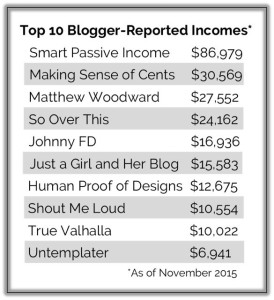“Our chief want is someone who will inspire us to be what we know we could be.” Ralph Waldo Emerson
Some people seem to have a knack for inspiring others. It’s like they’re oozing with brightness and positivity. They somehow just know what to do and say to inspire other people. It’s effortless. Perhaps for some people being inspirational is innate, but I believe there are ways any of us can tap into our light and purposely shine it on people who cross our paths. All you really need to be inspiring is a desire, the rest will follow.

Follow your own path.
People aren’t inspired by other people in the crowd. They barely notice what other people in the crowd are doing. People are inspired by those who dare stand away from the crowd, following their own dreams, living their own authentic lives. It takes guts to break away from the status quo, to allow yourself to be uncomfortable, and to chase the dreams you can’t stop thinking about. But it’s what you have to do, not only to be inspirational, but to achieve your goals.
“Two roads diverged in a wood and I – I took the one less travelled by and that has made all the difference.” Robert Frost
Do what you love.
The concept of “doing what you love” may be a little overhyped. The money won’t necessarily follow. Success isn’t guaranteed. It will still feel like work. Some days you may question whether this is really what you love. When people see you following your dreams and pursuing your passion, they’ll feel inspired to take a leap and follow their dreams. And there’s always a certain amount of pleasure in doing what you love. Even if it doesn’t make you rich, it will make you happy.
Become a master of your craft.
Let’s be honest: there’s nothing inspiring about mediocrity. Ordinary, while sometimes enjoyable, is forgettable. The most well known people in any discipline were great at what they did. Strive to move past your plateau and excel within your passion. Take a class. Read a book. Find a mentor. Venture outside your comfort zone and continually push yourself to new heights, not just for yourself, but to show others that it can be done. People are watching what you do and they’ll know if the walk doesn’t match the talk.
Let your ego go.
Humility is inspiring. Ego will turn people off even when you’re excellent at what you do. If you can learn to be confident without being arrogant, people will love you much more. Confidence is (realistically) believing in yourself and trusting your abilities. Ego is confidence on steroids. Ego makes you over-exaggerate your importance and accomplishments. Be less Kanye and more Taylor.
Share your failures and your successes.
Sharing your successes makes you admirable, but sharing your failures makes you a resource. When you only talk about your successes, you become unrelatable. Most people have suffered some level of loss in pursuit of their goals and can’t identify with someone who’s always won. If you’re honest with yourself, you’ve suffered losses too, but what’s made you successful is continuing in spite of them. If you can help people avoid the mistakes you’ve made by sharing the knowledge you’ve gained, you’ll make their path to success a little easier and they’ll be grateful for it. You’ll inspire them to keep going even when it’s tough or the outlook is bleak.
Be resilient.
We all suffer setbacks on our path to success. It comes with the territory. What’s inspiring is showing how you can bounce back from setbacks, refusing to let them derail your progress. You may fail, but let your failure be part of your success story, not the finality of it.
Share your inspiration.
Inspiration is contagious. To be inspirational, you have to first be inspired. Share the quotes, stories, art, people, foods that inspire you. As you share the things that motivate and encourage you, those in your influence will also be motivated.
Focus on the good in life.
“Keep your face toward the sunshine – and the shadows will fall behind you.” Walt Whitman
Staying positive isn’t always easy, especially when you’re faced with obstacles. If you make a conscious decision to focus on the good, you’ll be a happier person. People around you will notice and want to know your secret.
Help other people.
But not just so you can inspire other people. If you’re helping others for bragging rights, people see right through you and those bragging rights will be all you have. Help others from a genuine place, because you have the ability to help and you have compassion for other human beings.
Make people feel good about themselves and challenge them do to their best.
“I’ve learned that people will forget what you said, people will forget what you did, but people will never forget how you made them feel.” Maya Angelou
Many people perform better when they know someone expects them to perform better. Continually motivate the people around you to be the best version of themselves, to continually strive for the next level.
Share the why behind what you do.
You’re not the only person doing what you do. So share your story, the reason for doing what you do. Talk about the problems you wanted to solve with your product, the audience you wanted to reach with your blog, the needs you’re meeting with your services.
Be inspired.
Inspiring other people starts with you. You can’t share a flame you don’t have. People can easily spot a fake. If you’re having trouble finding inspiration, re-read this list. These aren’t just ways you can inspire others, they’re also ways you can inspire yourself.








